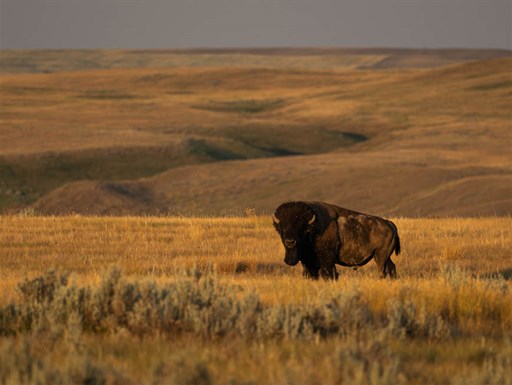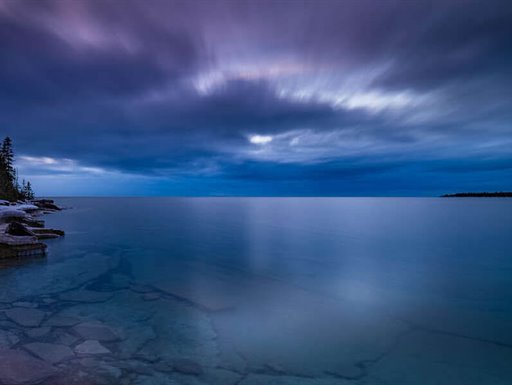Here you will find an ever increasing range of articles covering technique and tips on using our cameras and lenses.
Hi! Geraint here with a few tips and tricks!
The winter can be a rather challenging time for us macro photographers because our favourite bugs and flowers have disappeared, and interesting subjects become more difficult to find.
In this blog I will share my favourite subjects to photograph with the hope that this will help keep you exploring through the winter months. Together let’s keep shooting! We can wrap up warm, stay dry and make it fun!
A flask and some (lots of!) biscuits are essential gear.
Tiny mushrooms


OM-D E-M1 Mark III, M.Zuiko 60mm Macro. 17 images focus stacked Hand held1/250, F4.5, ISO 250 lit with Fl900r Flash and Cygnustech Diffuser
Fungi aren't just for autumn! During the winter, try searching along fallen branches, log piles and even your garden hedges and discover the fascinating world of tiny mushrooms and fungi.
The miniature scale of these wonderful subjects mean that additional equipment is required.
Aside from my camera (currently the wonderful OM-1) and my cherished Olympus 60mm macro lens, I also use extension tubes and the Raynox DCR-250 macro lens converter, sometimes all at once. Extension tubes reduce available light, for that reason I would suggest adding flash or LED lighting to maintain beautiful light and high image quality.
Depth of field is very limited at such high magnifications, so I would recommend focus stacking/bracketing as means of achieving greater depth of field. If this is new to you then now is the best time to practise with subjects that won’t run/flap/fly away.
Manual camera mode gives us full control over our exposures and this is my preferred method for high magnification shooting.
Usually I would aim for a shutter speed of 1/250th to 1/50th depending on available light and creative decisions. The lens aperture controls depth of field and ambient lighting; I shoot between F4 and F7.1 at high magnifications. Beyond F7.1 I notice diffraction impacting image sharpness on account of my extension tubes. However, without extension tubes, I am happy to shoot up to F10. Everyone will have their own tolerance levels with such things so it’s best to experiment and find yours.

OM-1, M.Zuiko 60mm Macro, Extension Tubes, Fl900r and Cygnustech Diffuser. Eight image focus stack1/125, F6.3, ISO 400
Look for interesting moments that tell a story by spending time with your subjects. The image above was photographed in my garden. After spotting the tiny springtail approaching the mushroom, I paused and waited in anticipation, hoping that the springtail would pause for a moment for a photograph. Isn’t it amazing how much can happen upon a rotting leaf?!

OM-1, Olympus 60mm Macro, Fl900r and Cygnustech Diffuser, Extension Tubes1/125, F/6.3, ISO 320
A tiny slug with a mini mushroom. Using flash and natural backlighting can create lovely bokeh and rather dramatic images. By holding down the depth of field preview button on my OM-1 whilst moving the camera closer to the slug, I can see the point when I achieve the maximum depth of field. I then know when to press the shutter and achieve enough depth of field in a single frame.
Rainy days can be wonderful for macro photography as it transforms the micro world. Pro tip be careful with your photo gear if it’s not weather sealed. Heading out just after a rain shower can reveal some wonderful images.

E-M1 Mark III, Olympus 60mm, FL900R, Cygnustech Diffuser – eight image focus stack1/50, F/8, ISO 400
Moss and moss sporophytes are brilliant subjects! The beautiful symmetry and water drops caught my attention. Placing the camera below the subject makes them appear large and imposing. The forest reflects in the raindrops but so does my flash diffuser, making them look like spooky eyes!

It’s really fun to look for new ways to depict your subjects. I spotted these mushrooms in my garden and began searching for different angles and compositions. The raindrops created a fascinating image! Much like a slug, I lay down on the ground and capture 26 images for a focus stack.Playing and experimenting with our photographs, without the fear of ‘getting it wrong’ allows us grow creatively and show the world in a new way that is unique to each of us.
Springtails and small beings!

OM-1 Mark III, M.Zuiko 60mm, FL900R, Cygnustech Diffuser – eight image focus stack1/50, F/8, ISO 400
Measuring in at around 2–3mm these are tricky to see but we can achieve some great photographs! They are one of my favourite creatures in the world and I really do hope you enjoy seeing them as I do.
Look carefully along dead leaves and rotting foliage for (adorable) moving blobs! Experiment with different camera angles to tell their story! From above we have a bird’s eye view of a springtail on a leaf! Shooting from a slight distance allows us to see the veins in the leaf, which allows for a sense of scale.

When we position the camera so that it is parallel to the subject, we will create separation between our subject and the background, allowing it to stand out in the image. Much like bird photographers do too!

“What is this?” a delightful slug and a globular springtail sharing a mossy log. Interaction between subjects is fantastic to capture because this adds a lot of storytelling to our images. Spend extra time with your subjects to see what opportunities may arise. Have your composition ready, be patient and enjoy watching their unusual lives.
Be careful with small subjects; ethical practices are so important in macro photography (as much as other genres) and looking for photo opportunities is far better and more meaningful than creating them.
I hope that these tips are useful and that you can keep enjoying macro photography during the ‘off’ season. Keep it enjoyable and your images will thank you for it!
See you soon!


